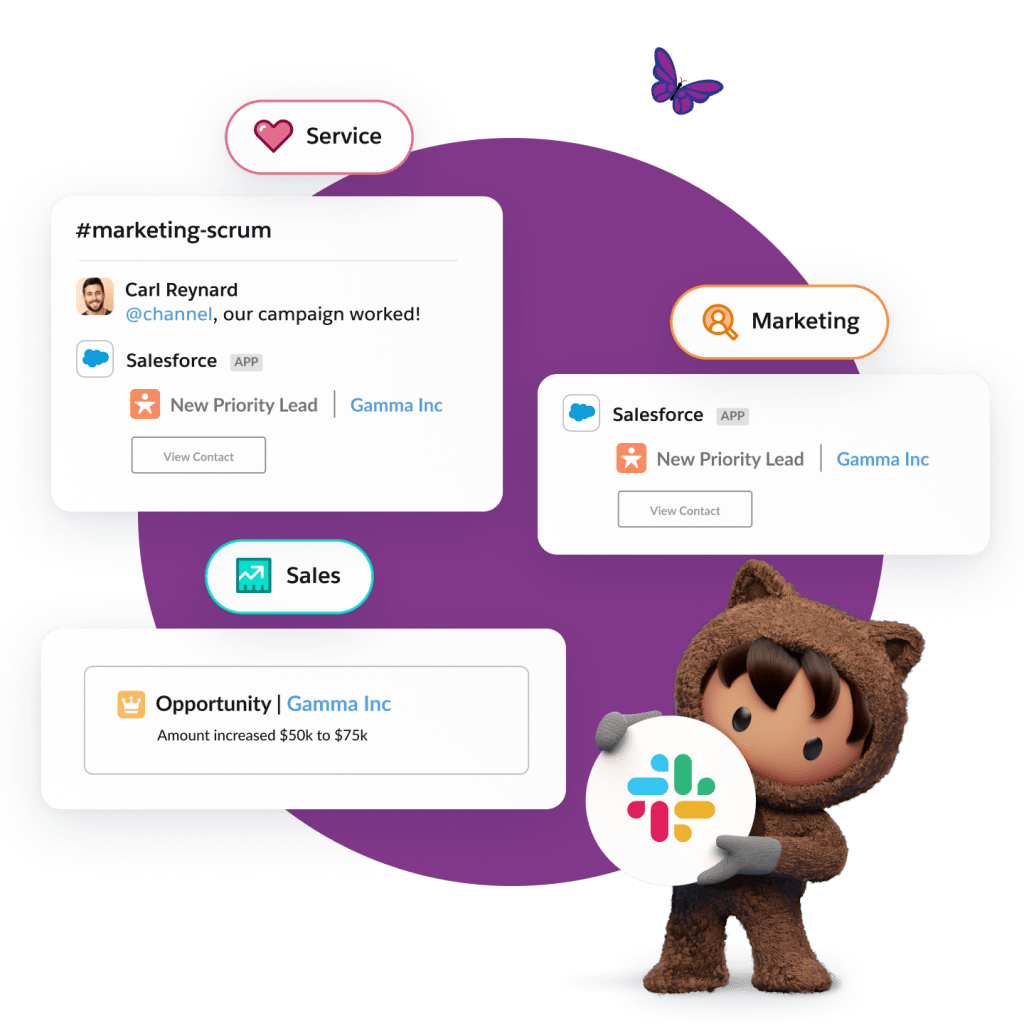Remote work is reshaping how we view collaboration and productivity in business. Culture in the future of work means thinking beyond the physical office. Not everyone nowadays prefers sitting in an office for work. They can work from mountains, beaches, valleys and at home, in the comfort of their own space.
With the hybrid work model in frame, the relationship among team members and their connections also shifts. Team relationships make or break the workmood and ultimately the business. Nearly 9 out of 10 workers say feeling valued by their team impacts their happiness at work.
What we’ll cover:
Build strong team bonds for small business
As hybrid remote work is becoming the new norm, maintaining strong team bonds in small business is a priority to be successful. More than 8 in 10 U.S. workers claim their happiness at work is impacted if they feel a sense of purpose and belonging. And if the team isn’t fulfilling their purpose, they may get stressed and never feel that they belong. This may hinder business growth.
Source: How Salesforce builds meaningful employee experiences
Building strong team relationships has significant implications like:
Challenges of building remote team relationships
Building strong team bonds in a small business can be very rewarding, but it has its own set of challenges. Here are some common obstacles that small businesses might face when trying to foster team relationships:
Communication barriers
Effective communication is essential for teamwork, yet many small businesses struggle with it. Teams working in different locations or departments can develop misunderstandings and misaligned goals, creating friction and inefficiency. Additionally, team members might not feel comfortable sharing their ideas or concerns, leading to unresolved issues that can hinder collaboration.
Different personalities and work styles
In any team, individuals bring unique personalities and work styles that can either enhance or complicate group dynamics. Conflict can arise due to different approaches to problem-solving. For example, a detail-oriented employee might clash with a big-picture thinker. Likewise, if certain personalities dominate discussions, quieter team members may feel sidelined, which can stifle creativity and innovation.
Limited resources
Small businesses often operate with tight budgets and limited resources, which can limit their ability to organize team-building activities. Without dedicated funds for team outings or activities, opportunities for bonding might be few and far between. Moreover, teams might perceive team-building efforts as forced or insincere if they are poorly planned or infrequent.
Resistance to change
Team-building initiatives often require changes in routine or culture, which can be met with resistance from employees. There’s a possibility that sharing personal stories or feelings can make some team members uncomfortable, hindering participation. Additionally, teams might view team-building exercises as mere distractions from their work.
Time constraints
Small businesses are fast-paced and finding time for team-building activities can be challenging. Teammates are often juggling multiple responsibilities, making it difficult to coordinate in setting up time that works for everyone. Additionally, overloading team members with mandatory events on top of their daily tasks can lead to resentment rather than eager participation. Slack can help with this.

Strategies to strengthen remote relationships for SMBs
Remote teams may feel disconnected, but with the right tools and the right strategy, you can keep everyone on the same page, communicating with ease. Here are some strategies that you can use to keep your work family close, feel welcomed and recognized:
Strategize team meetings to know each other
Team building doesn’t happen overnight. It’s built on mutual trust, and with 89% of SMB leaders valuing trust with their employees, it’s vital to foster it. To do so, make time in your team meetings to get to know each other. This simple act can help your teammates share their personalities and learn more about each other’s experiences and fun facts.
The good news is that artificial intelligence (AI) is here to help you strategize. Here are some strategies you can use during team meetings to create a more open atmosphere:
- Automate meeting agendas: By automating the creation of meeting agendas, you can ensure that discussions remain focused and productive. Use the right tools to automate workflows, making it easy to set up recurring meetings with predefined agendas.
- Brainstorm icebreaker questions with AI: Let AI tools like Agentforce come up with icebreaker questions to begin meetings. This can help encourage participation and foster connection. Just give Agentforce a prompt: “Create 5 fun icebreaker questions for a team of three looking to get to know each other.”
- Create a weekly gratitude workflows: Having a weekly gratitude workflow can enhance team morale. Automate reminders for team members to share what they appreciate about each other or acknowledge contributions during team meetings.
Get creative with virtual activities
A virtual offsite is admittedly more difficult to plan than an in-person one, but it’s not impossible. Set aside time to connect as a team and try out new activities that work for your remote team. Find your team’s sweet spot and bring everyone closer. Here are some ideas:
- Host virtual happy hours: Set some time for informal gatherings where team members can unwind, chill, and socialize. Use themes (like trivia nights or costume parties) to make these evenings more eventful.
- Play online games: Play games like trivia or online escape rooms during your outings. These activities are fun, and reveal a playful side while promoting teamwork and problem-solving skills.
- Celebrate events together: Schedule birthdays, work anniversaries, or project completions together as a team. You can send gifts, make a digital greeting card, have a quick virtual party, and make the day more special.
Make communication easier with AI-powered technology
Technology fuels communication while functioning remotely. So, it’s better to use only the best AI tools and practices to keep your team well-informed, updated, engaged, and making connections from anywhere. Here are a few hacks:
- Adopt collaboration tools: Use platforms like Slack, Zoom or Google Meet for real-time communication. For example, Slack’s AI features can help your teams search smarter using natural language and summarize conversations, ensuring that important information is easily accessible.
- Organize everything in one place: Tools like Starter Suite, the customer relationship management (CRM) solution for small businesses, help keep everyone on the same page regarding project timelines and responsibilities. This transparency reduces confusion and enhances accountability.
- Schedule regular 1:1 check-ins: Having a consistent 1:1 meeting with your team is key for remote work. Generative AI tools can help create meeting notes and follow-up tasks, allowing managers to focus on meaningful conversations rather than administrative tasks. Maintain personal connections despite physical distances, ensuring everyone feels included in the conversation, and the work still gets done.
Foster inclusivity
Inclusivity is vital for building a strong team culture. Salesforce research shows that 88% of U.S. workers are motivated to do their best work when they feel heard by their managers. Here are some ways to ensure everyone feels valued:
- Get input from your team: Before planning events or making decisions, gather feedback from the entire team. Use anonymous surveys, suggestion boxes, or informal discussions to understand your team’s preferences and ideas.
- Celebrate diversity: Recognize and celebrate the diverse backgrounds of your team members. This could be through cultural events or themed days that allow everyone to share their heritage.
- Create safe spaces for discussion: Have open dialogue by establishing ground rules that promote respect and understanding during conversations. Ensure there’s no space for judgments.
- Implement inclusive policies: Ensure that company policies reflect diversity and inclusion values. For example, using structured formats like round-robin sharing, flexible work hours, cultural holidays.
Source: Salesforce Research
Celebrate small wins
Celebrating victories, no matter how small, is essential for maintaining motivation within a team. Here’s how to do it:
- Recognize milestones: Whether it’s completing a project phase or achieving a personal goal, acknowledge these milestones publicly during meetings or through company-wide emails.
- Weekly recognition rituals: Dedicate a few minutes in team meetings to acknowledge individual contributions, no matter how small. This could be as simple as thanking someone for their help on a project or celebrating quarterly goals achievements.
- Create a “Kudos” channel: Use Slack to create a dedicated channel where team members can share positive feedback about each other’s work.
Build annual retreats to connect
While building strong team bonds remotely is necessary, it’s important to take advantage of any time you have in person. After months of connecting online, it’s gratifying to meet in person, get to know each other — and even better, laugh at all the inside jokes that will inevitably come from a few AI-crafted ice-breakers. Here are some ideas:
- Organize networking events: Host an annual event for the team where everyone can come together, share some moments, and network with each other locally.
- Create coffee dates: Arrange informal dates where employees can interact outside the usual work hours. Share meals and have honest conversations.
- Host feedback sessions: Spare some time with team members to gather feedback on company culture or projects in an open forum setting.
Pro tip: Try to coordinate travel with the team when possible and look for opportunities (like conferences or customer events) where you might be able to overlap.
Cultivate remote team connections for small business with Starter Suite
With these tips and strategies, building remote team relationships for small business can be simple. Come together with your team and make something big.
With Starter Suite, you can easily manage customer relationships while simultaneously enhancing your team collaboration. Just like different team members coming together, it integrates sales, service, and marketing capabilities into one user-friendly application.











